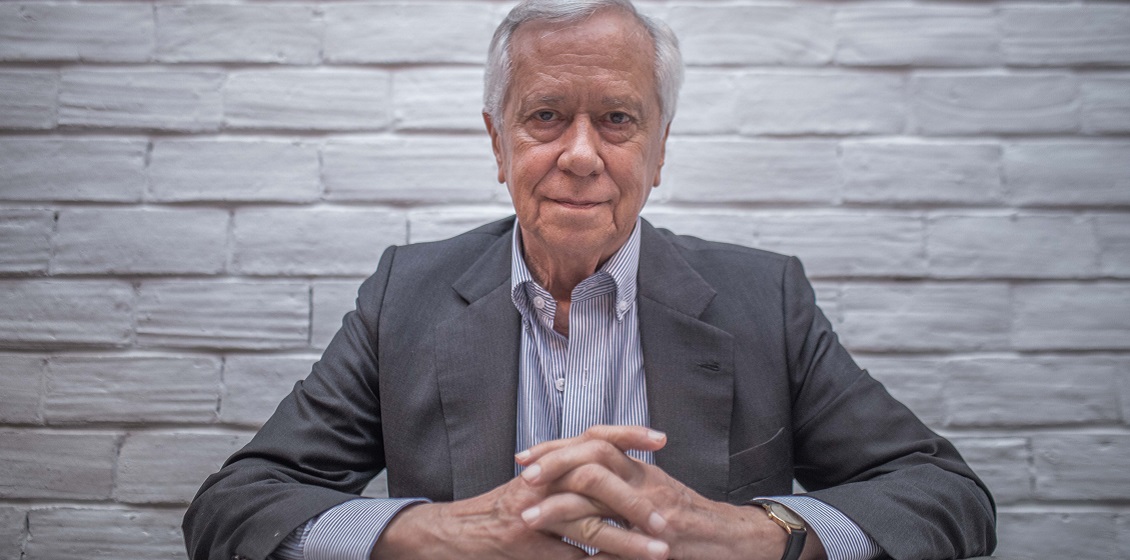He is often mentioned as the father of science-, technology- and innovation policy in Colombia.
Eduardo Posada is a Colombian physicist and president of the Colombian Association for the Advancement of Science (ACAC), a promoter of the Colombian legislation for science and technology. We meet at a café in Colombia’s capital Bogotá. Posada is more optimistic than normally. Just preparing the last details for the official creation of the new Ministry of Science, Technology and Innovation, the first of its kind in history in Colombia.
”I feel optimistic, because the Ministry generates more access to the high level of the Government. And more visibility to Science and research,” states Posada.
For the experienced physicist and science-policymaker, the creation of the Ministry in December 2019 is really symbolic and creates hope:
”This is the first time, that a Government in Colombia has taken science and research seriously at this level.”
Mission de los Sabios
At the same time in December, the so-called mission of the Wise – Mission de los Sabios in Colombia – of which Eduardo Posada is Vice-president, published its recommendations after almost one year’s work. The mission was formed by 43 international experts with support from ten universities. For 300 days the experts worked on recommendations for a path towards a more sustainable development in Colombia.
Three big challenges are how to protect the country’s biodiversity, more sustainable production in Colombia and about reaching for a more equal and just country for instance within the sectors of education and health.
One of their recommendations was exactly to invest more in research. That’s one big preoccupation for Eduardo Posada. His homeland is doing well economically and on other core parameters. But on education and research, Colombia scores low for the region. According to the important indicator ACTI, which calculates investments in Science, Technology and Innovation compared to the country’s Gross Domestic Product, GDB, Colombia scored in 2018 only 0,61 % on ACTI. As a comparation OECD countries normally invests 2 % on ACTI.
“Colombia is really low on these investigation-indicators also compared to other countries in the region,” says Eduardo Posada.
The Mission of the Wise came with recommendations on areas like Alternative Energies, Health, Creative Industries (Orange economy), Drinking Water, Climate Change and several others.
This is the second Mission of the Wise which Colombia has had – the first one in was back in 1994, with participation of the Nobel Prize winner of Literature, Gabriel Garcia Marquez – and of which Eduardo Posada also took part. A total of ten people was part of the country’s first Mission of the Wise 25 years ago.
Research is fundamental for development of a country
With the opening of the new Ministry of Science, Technology and Innovation, this special moment for Colombian Science and Research also is expected to be reflected in the Government’s response to the Missions recommendations:
”President Iván Duque has said, that he will follow the recommendations of the Mission and he will make it 1,5 % ACTI and ID close to 1 %,” states Eduardo Posada.
For the scientist and ”Father of research-policy in Colombia”, prioritizing science is extremely important for development in a country like his motherland:
”Research is fundamental for well-being/welfare and development of a society. We have many problems in Colombia on which we need solutions found here.”
And it is important, that the science developed in each country responds to specific needs and characteristics of the country. Because otherwise the topics might not be investigated at all or not prioritized adequately:
”Pharmaceutical companies they don’t care about illness that we only have here. It’s not worth it for them to do research on such an area. So, we must assure that for our side, from the State.”
And also, on environmental issues research developed in Colombia is of much value for Posada:
”Colombia is the second most biodiverse place on earth. We must study our biodiversity – what do we do, to take care of it? It can also be to study fruits or vegetables, that we only have in this region. So, it’s necessary that we as a nation study them.”
In the early days of Eduardo Posadas career, he participated in developing production of instant coffee near Manizales in the Colombian coffee region. An extremely important area for the country being the world’s second largest coffee producer in the world. One example of the importance of prioritizing research on country-specific issues.
”Also equipment, it’s necessary to invest in equipment, that works under our conditions, can be humidity, altitude, temperature etc. And in Colombia there is also a big need for studies within social sciences within our context of the armed conflict etc.”
The Ministry opening has yet to prove if it comes together with improved prioritising within science, technology and innovation – if the President as promised will follow the recommendations of the Mission of the Wise.
Lise Josefsen Hermann is a Danish journalist based in Ecuador


